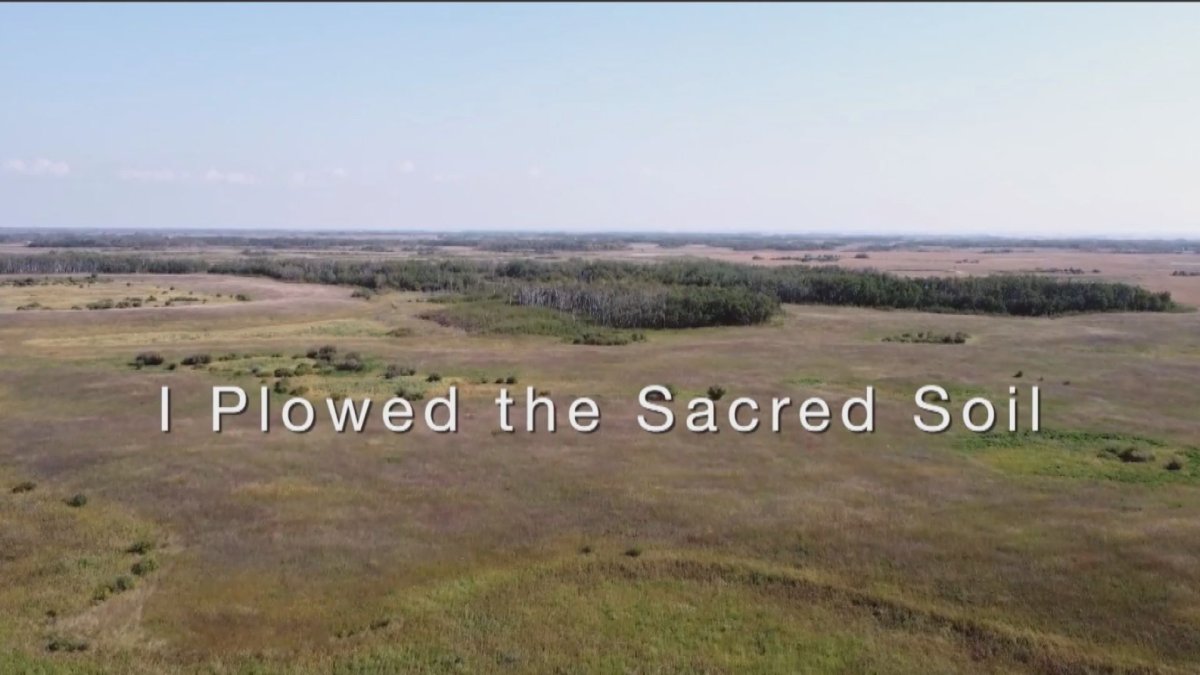Documentary I Plowed The Sacred Soil retells the history of the File Hills Farm Colony on the Peepeekisis Cree Nation, which is over 100 kilometers east of Regina.

Band member Mark Dieter, who is the writer and director, started his research on the File Hills Farm Colony Experiment in 2019.
“It was important for me because it finally allowed me an opportunity to learn about the history of my community,” said Dieter.
“Growing up on my reserve until 1988, when the first time I moved off, I didn’t know anything about the history of community … it was only until I moved back to the reserve within the last 15 years that I began to sort of rediscover the history of my community because the impacts of what the colony had done to my community were so prevalent. People still talk about it to this day.”
The File Hills Farm Colony Experiment began in 1898 and was administered by the local agent for what was then the Department of Indian Affairs, William Morris Graham. His goal was to fully introduce agriculture to Indigenous communities.
In doing so, students at nearby residential schools were hand-picked for this experiment. They were forced to relocate to the Peepeekisis Cree Nation to learn a new way of living.
“There was a lot of forced arranged marriages … who were then given entitlement to some of these plots of land (to) farm,” he said. “A lot of these young people … were from other First Nations communities. So, it created a lot of animosity and division early on.”
- Fall COVID-19 vaccine guidelines are out. Here’s what NACI recommends
- Thousands of Canada’s rail workers have a strike mandate. What happens now?
- Some 2019 candidates ‘appeared willing’ to engage with foreign interference: Hogue inquiry
- Bird flu: Experts urge more surveillance in Canada — before it’s too late
The documentary explores different accounts from direct descendants of those were part of the File Hills Farm Colony Experiment.
In the documentary, Peepeekisis Chief Francis Dieter said the File Hills Farm Colony Experiment wanted to show the world that Indigenous peoples can become farmers, including his great-grandfather, Fred Dieter.
“It was a good thing but what I didn’t like about that was (my grandfather) Fred Dieter thought he was going home,” said Chief Dieter.
“The Indian agent told him, ‘You’re going to come here and farm. Before you do that, you’re going to get married first’ … he didn’t even have time to get to know her … it was a forced marriage. He was forced to build a house and to start farming.”
Dieter collaborated with Don List from Birdsong Communications Ltd. to tell this story and they had their first public screening in Regina on Nov. 17th and will be having another one on Nov. 24 at the University of Regina.
“The takeaway that I want the viewers to get from this film is that every community has a story,” said Dieter. “It’s important to understand the stories and the history of your communities, because it may answer a lot of questions about a lot of things that exist on communities today… experiments like this and other things that happened to First Nations communities through government policies, and through the presence of the union agents, it’s right across the board.”
In September 2022, the Indigenous minister at the time, Marc Miller, gave a formal apology to the community of Peepeekisis Cree Nation for the government’s role in allowing the File Hills Farm Colony Experiment to occur.
The agricultural experiment went on until the early 1940s.




Comments